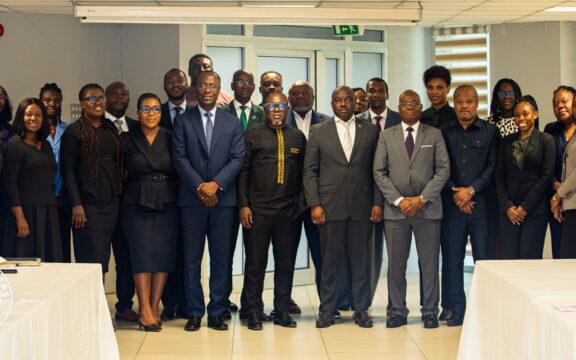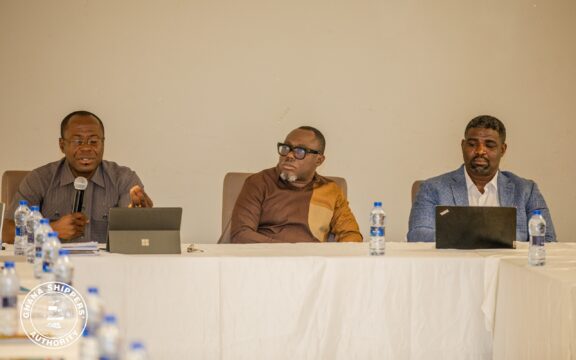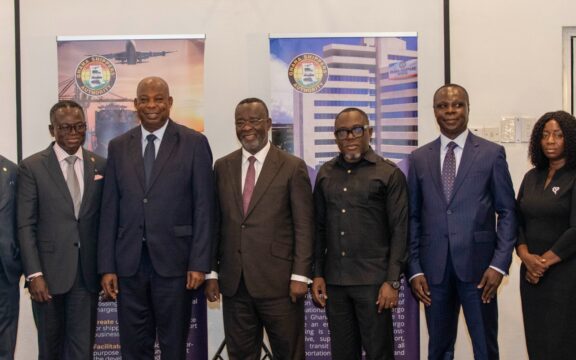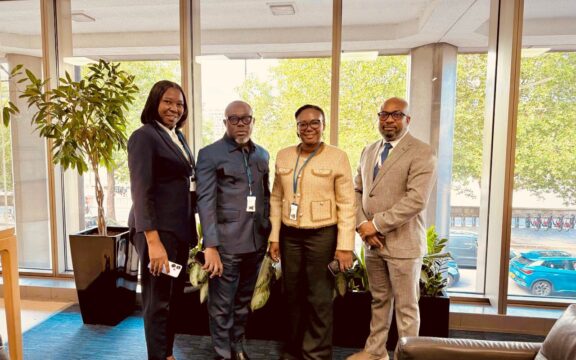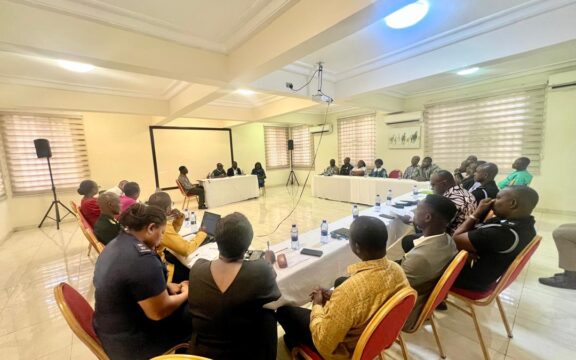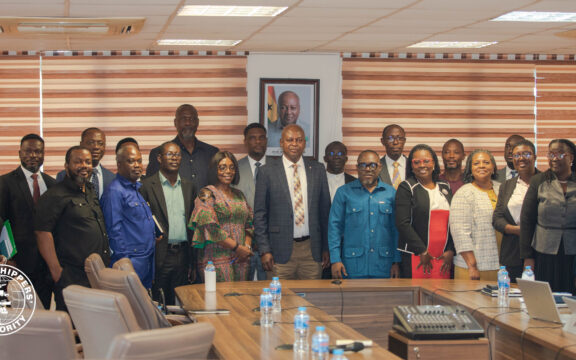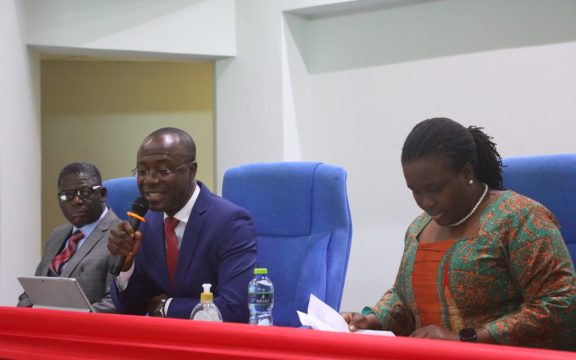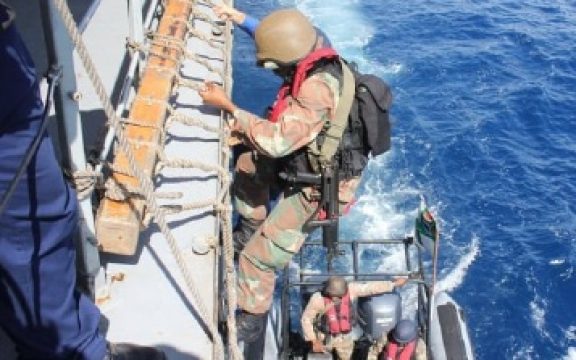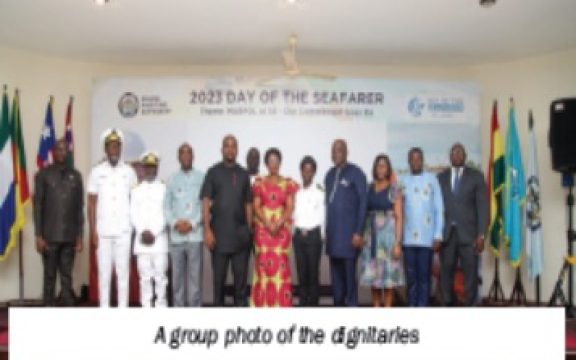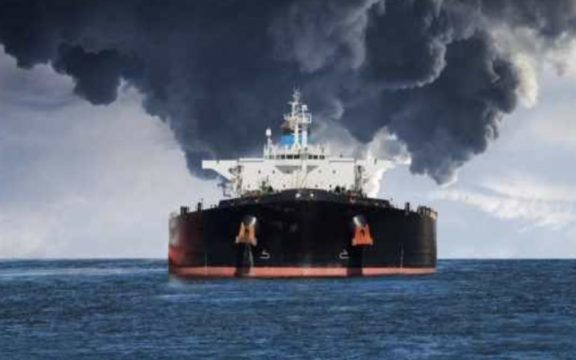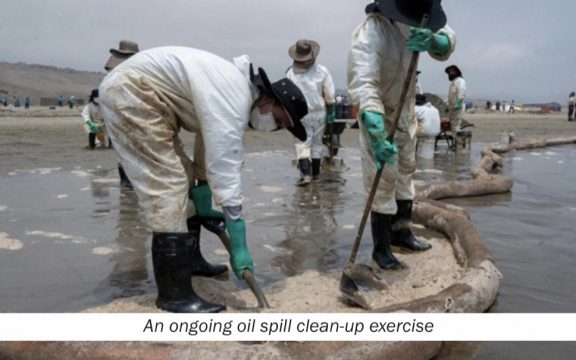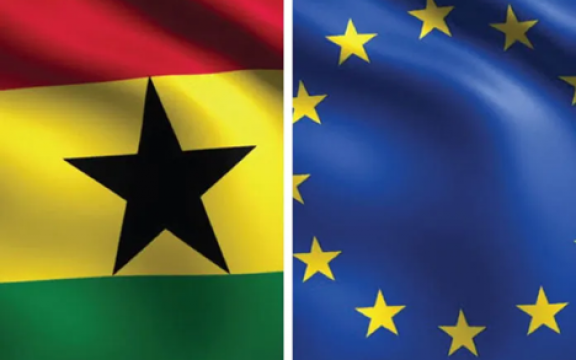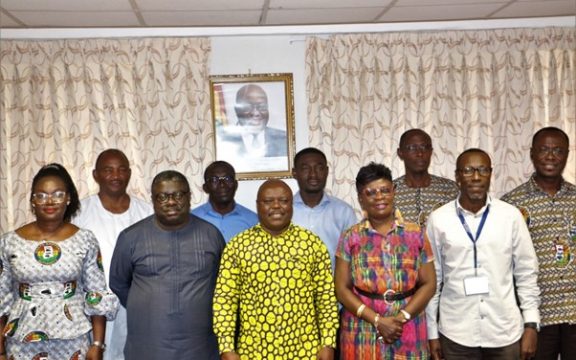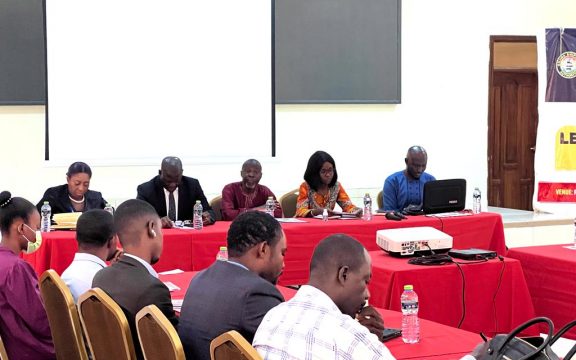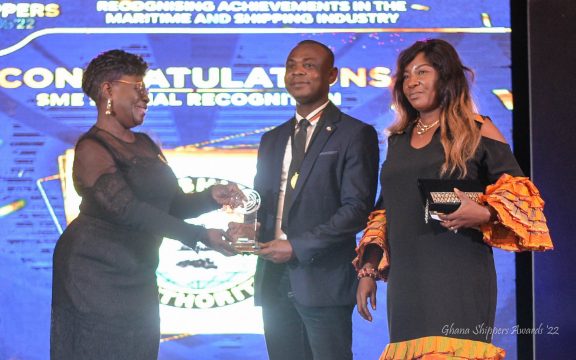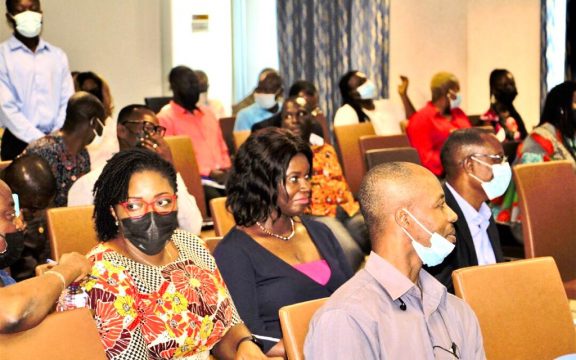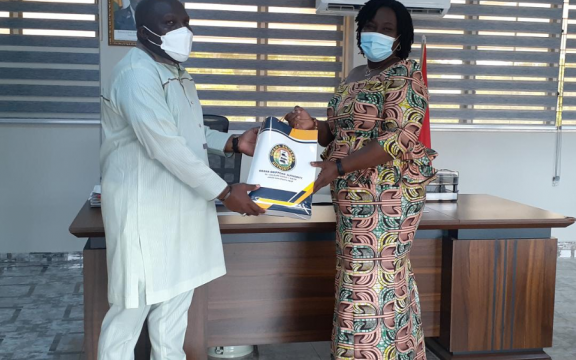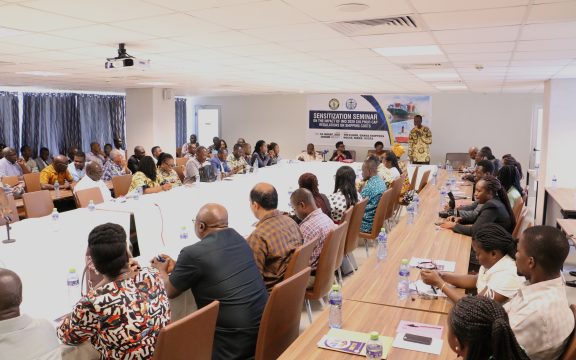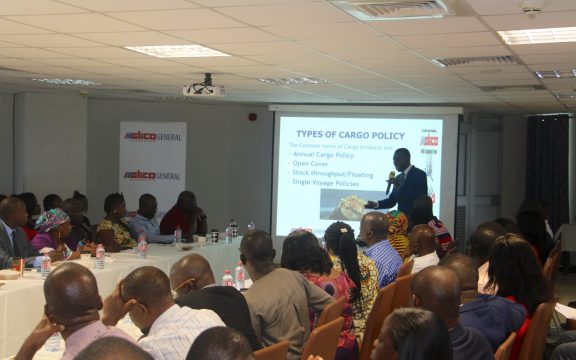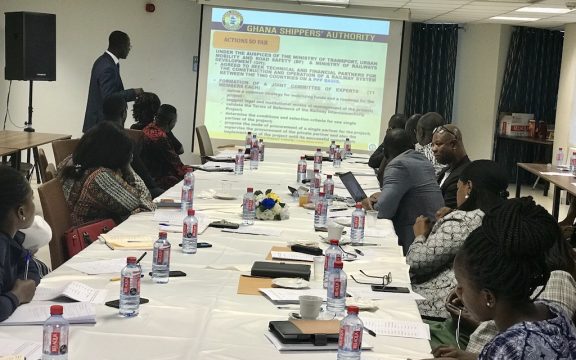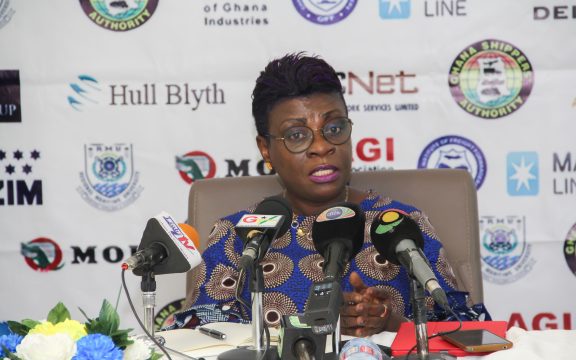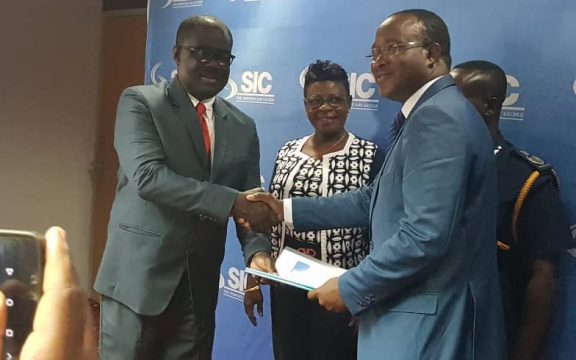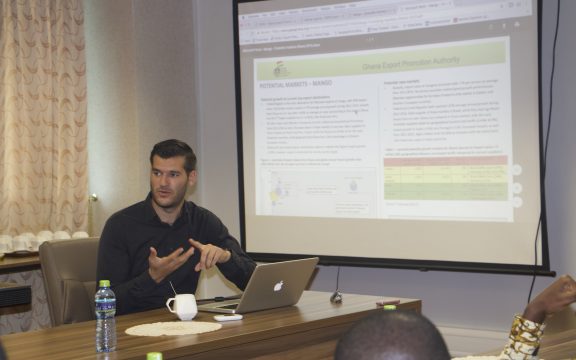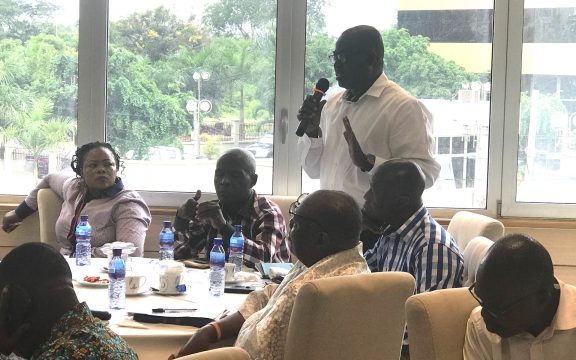 The shipping industry plays an immense role in world trade. At about age seven (7), I received a beautiful Christmas gift (a waist bag) from my auntie who lived in London at the time. She could not spend Christmas with the family in Ghana and sending a present by post was her own subtle way of being merry at Christmas. I remember feeling special whenever I wore the waist bag. It was exciting to show off my “London bag”. For many Ghanaians, the excitement that comes with owning foreign goods is still vibrant in this day and age.
The shipping industry plays an immense role in world trade. At about age seven (7), I received a beautiful Christmas gift (a waist bag) from my auntie who lived in London at the time. She could not spend Christmas with the family in Ghana and sending a present by post was her own subtle way of being merry at Christmas. I remember feeling special whenever I wore the waist bag. It was exciting to show off my “London bag”. For many Ghanaians, the excitement that comes with owning foreign goods is still vibrant in this day and age.
Presently, a chunk of all household items, gadgets and even food is imported from Asia, Europe, America, etc. Clearly, the world is a global village and it has become a reality to depend on each other, especially in the wake of COVID.
Let me state that I am not in away against world trade. I am simply concerned about the pollution that comes with world trade and particularly through shipping. It turns out I am not the only concerned global citizen.
For instance, the International Maritime Organization (IMO) in its 2020 study on Green House Gas (GHG) emission showed that GHG emissions from shipping increased by 9.6% from 2012 to 2018 and projects a significant increase by 2050 if nothing is done. In this essay, I will discuss what role Ghana has to play in contributing to minimizing pollution from shipping.
INTERNATIONAL INTERVENTIONS
Pollution has become a global rather than a national problem. Indeed, the International Maritime Organization (IMO) uses various instruments to protect the marine environment from shipping activities. The IMO’s work is centered on enhancing its activities to mitigate climate change, reduce emissions from ships, reduce marine plastic littering, etc. The IMO adopted the International Convention for the Prevention of Pollution from Ships (MARPOL) in 1973.
 MARPOL was subsequently amended by the Protocols of 1978 and 1997. The Convention is the main International Convention covering the prevention of pollution of the marine environment by ships from operational or accidental causes and has six Annexes, which address various forms of pollution from ships. For instance, Annex VI of MARPOL addresses air pollution from ships and establishes limits on nitrogen oxides (NOx) emissions and requires the use of fuel with lower sulfur content to protect the environment.
MARPOL was subsequently amended by the Protocols of 1978 and 1997. The Convention is the main International Convention covering the prevention of pollution of the marine environment by ships from operational or accidental causes and has six Annexes, which address various forms of pollution from ships. For instance, Annex VI of MARPOL addresses air pollution from ships and establishes limits on nitrogen oxides (NOx) emissions and requires the use of fuel with lower sulfur content to protect the environment.
In 2021, the IMO adopted amendments to Annex VI of MARPOL aimed at reducing carbon dioxide emissions from ships and included targets for energy efficient to further reduce GHG emissions from shipping. Much of the interventions at the international front in tackling maritime pollution have been to provide regulatory frameworks to be enforced by States.
Ghana in Perspective
Ghana is a country with substantial size of sea. Over the years various Governments and other stakeholders have taken steps to ensure the sustainable use of the sea and its resources. For instance, there are a number of institutions, state agencies, civil society organizations among others interested in the use of the sea. Some of these institutions include: Ghana Navy, Ghana Ports and Harbours Authority, Ghana Shippers Authority, Ghana Maritime Authority, etc.
In Ghana’s quest to attain middle-income status by 2020, a number of measures were put in place. Prominent amongst them was the pursuit to make Ghana the investment trade gateway to the West Africa region through Export Processing Zone (EPZ), free ports and liberalized trade policies.
Maritime transport was expected to play a pivotal role in attaining middle-income status because of its role in fostering development through international trade. Today, Ghana has attained middle-income status and it is therefore safe to assume that all these economic inducers worked to some great extent.
 Pollution from shipping activities is characterized by damage to the air, sea and the environment. Shipping activities specifically cause air pollution, water pollution, acoustic and oil pollution.
Pollution from shipping activities is characterized by damage to the air, sea and the environment. Shipping activities specifically cause air pollution, water pollution, acoustic and oil pollution.
Pollution from ships undoubtedly affects climate change and it has become imperative for States to actively participate in achieving a climate proof maritime transport system.
The Fourth IMO Green House Gas (GHG) study released in 2020 shows that GHG emissions from shipping increased by 9.6% from 2012 to 2018 and projects a significant increase by 2050 if nothing is done. Ghana, as a country whose economy is heavily dependent on import and export of goods, has a role to play. In recent times, various activities have been instituted to ensure that pollution from maritime activities is brought to its barest minimum. Indeed, it has become necessary to institute preventive measures against maritime pollution due to Ghana’s status as an oil producing country and consequently placing Ghana at a high risk for maritime pollution.
ACTION PLAN
In 2016, The Maritime Pollution Act 2016 (Act 932) came into force. The Act provides for the prevention, regulation and control of pollution within Ghana’s territorial waters and implements most of the maritime pollution conventions ratified by Ghana.
The coming into force of the Maritime Pollution Act was a major step to dealing with maritime pollution. There has also been the development and adoption of a National Maritime Strategy which if implemented will impact efforts aimed at reducing pollution from maritime activities.
 The Ghana Ports and Habours Authority has also developed a program for port emissions, which aims to monitor emissions from shipping activities in the ports. The Ghana Maritime Authority periodically issues notices and circulars, which outline the mandatory procedures for operations within the territorial waters of Ghana. All the above form part of a holistic approach to addressing pollution from maritime activities.
The Ghana Ports and Habours Authority has also developed a program for port emissions, which aims to monitor emissions from shipping activities in the ports. The Ghana Maritime Authority periodically issues notices and circulars, which outline the mandatory procedures for operations within the territorial waters of Ghana. All the above form part of a holistic approach to addressing pollution from maritime activities.
WAY FORWARD
Admittedly, maritime pollution is not an issue to be tackled by individual countries. It requires a joint and collaborative pooling of resources of countries worldwide to ensure that maritime pollution is reduced to the very minimum.
Indeed, Ghana has taken laudable measures to ensure that it contributes its quota to dealing with this global issue of pollution. However, a lot more needs to be done to ensure that efficient results are achieved. For instance, because achieving a climate proof maritime transport system presents a multifaceted challenge, there is the need to tackle it from a multifaceted angle.
This requires joint cooperation and effort of all stakeholders in the implementation of maritime pollution laws and policies. It is suggested that more can be achieved if stakeholders collaborate in their activities towards reducing maritime pollution.
CONCLUSION
Ghana’s maritime transport sector can achieve a climate proof status if the stakeholders involved implement the laws and policies already in place jointly. Admittedly, majority of the work relating to regulatory frameworks and policies so far as reducing maritime pollution are already in force. It is however important to ensure that stakeholders leverage on their strengths to ensure efficiency in dealing with maritime pollution.



